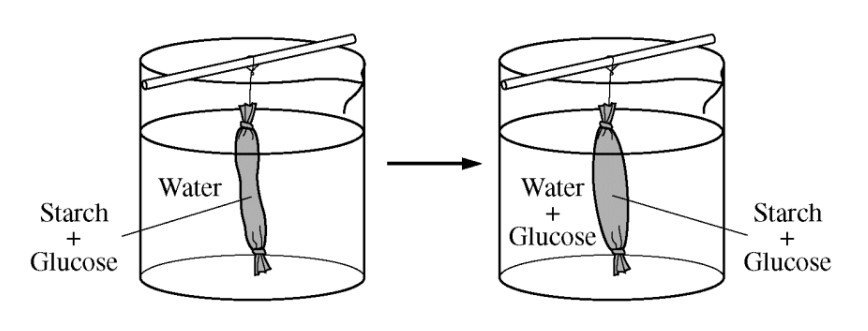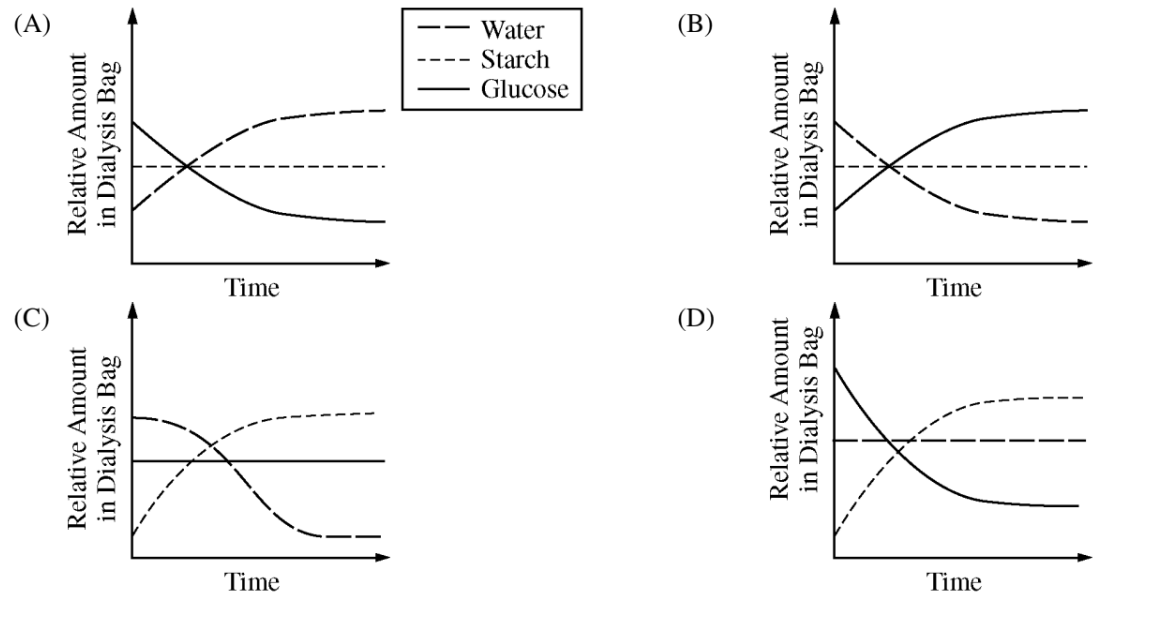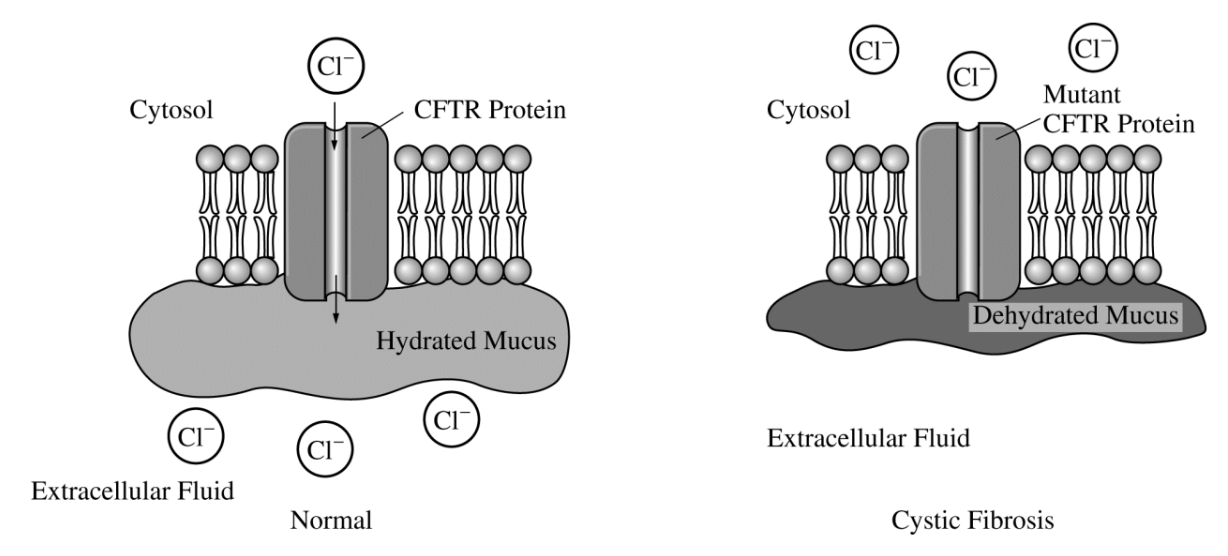Question
If ATP breakdown (hydrolysis) is inhibited, which of the following types of movement across cell membranes is also inhibited?
(A) Movement of oxygen into a cell
(B) Movement of water through aquaporins
(C) Passage of a solute against its concentration gradient
(D) Facilitated diffusion of a permeable substance
Answer/Explanation
Ans:C
Question
A common laboratory investigation involves putting a solution of starch and glucose into a dialysis bag and suspending the bag in a beaker of water, as shown in the figure below.

The investigation is aimed at understanding how molecular size affects movement through a membrane. Which of the following best represents the amount of starch, water, and glucose in the dialysis bag over the course of the investigation?

Answer/Explanation
Ans:A
Question

Cystic fibrosis is a recessively inherited disorder that results from a mutation in the gene encoding CFTR chloride ion channels located on the surface of many epithelial cells. As shown in the figure, the mutation prevents the normal movement of chloride ions from the cytosol of the cell to the extracellular fluid. As a consequence of the mutation, the mucus layer that is normally present on the surface of the cells becomes exceptionally dehydrated and viscous. An answer to which of the following questions would provide the most information about the association between the CFTR mutation and the viscous mucus?
(A) Is the mucus also secreted from the cells through the CFTR proteins?
(B) How does the disrupted chloride movement affect the movement of sodium ions and water by the cell?
(C) How does the mutation alter the structure of the CFTR proteins?
(D) What is the change in nucleotide sequence that results in the CFTR mutation?
Answer/Explanation
Ans:B
